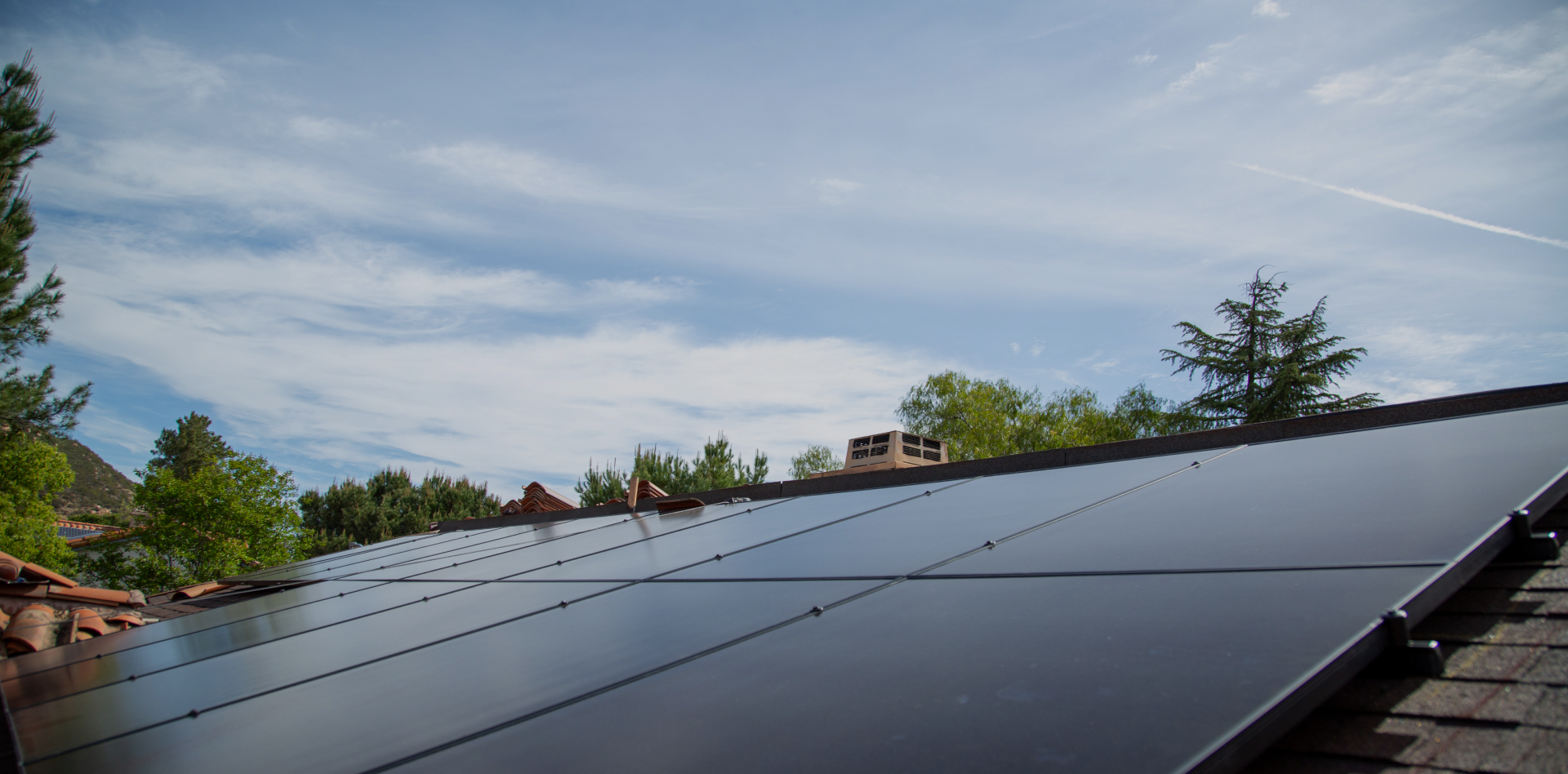




The answer is yes! Even when the sun isn’t shining brightly and on cloudy days, solar panels will still produce electricity. Solar panel installation is a great way to harness renewable energy, but many homeowners wonder: Do solar panels work on cloudy days?
So how exactly do solar panels bring electricity to a household? We like to keep it quick and simply so you can understand the basic idea without getting into the nitty gritty science details. When the particles of sunlight reach the solar panels, the conversion process begins. The photons of the particles are turned into electrons, which are used as direct current electricity. From there, the system’s inverter will begin it's work, converting it to usable electricity for a home.
Some reddit users even report seeing improvement on lightly cloudy days!
When considering solar panel efficiency across various weather conditions, it’s important to understand how factors like sunlight, temperature, and weather patterns can influence performance.
| Weather Condition | Impact on Solar Panels |
|---|---|
| ☀ Sunny | 90-100% Best efficiency, maximum energy output. However extreme temperatures can reduce solar panel efficiency. |
| ☁ Cloudy | 10-25% efficiency, still generates power. What this means is even on cloudy days your solar system can still generate electricity! |
| 🌧 Rainy | 30-60% Lowered production, but rain helps clean panels. Extreme storms can reduce efficiency further. |
| ❄ Snowy | 0-20% Snow can obstruct solar panels, significantly decreasing efficiency. However, snow tends to melt off the panels after some time, and in some cases, cold temperatures can improve the efficiency of the solar cells by reducing overheating. |
Most people assume that solar panels only work when the sun is shining. While direct sunlight provides the best conditions, indirect sunlight still allows panels to generate electricity. This is why even in regions with mixed weather, solar remains a smart investment.
Most people assume that solar panels are only able to work when the sun is out and shining. While this is definitely the best weather for solar panels to produce useful energy for a home, it's not the only time those solar panels can harvest sunlight. Of course, it would be reasonable to think that solar panels can only create converted electricity when we can see the rays of sun hitting them, but this is simply a misconception.
The important thing to remember is that direct sunlight isn’t necessary for this process. All the solar panels on a roof need are the photons that are emitted from the particles of sunlight, which means even a cloudy day can result in solar energy. While not as powerful as direct sunlight, this allows a home’s solar panels to be productive even in not seemingly “ideal” weather conditions.”
Overall, solar panels are extremely durable and designed to withstand even harsh winter climates and storms for decades. Still, getting 100% production compared to the 10 to 25% production rate on cloudy, stormy days is preferable, which is why consistently sunny areas can be much better suited for solar panel systems.
Solar panels don’t rely only on visible sunlight—they absorb photons from sunlight, which are still present on cloudy days. While the output may drop compared to a clear day, homeowners can still benefit from solar energy year-round.
Modern photovoltaic (PV) panels undergo rigorous testing to ensure they function efficiently in various conditions. This means that even in places with frequent cloud cover, solar panels are still a viable energy source.
Yes, solar panels need to be cleaned periodically to maintain maximum efficiency. While rain can naturally wash off dust and debris, cleaning them manually may be necessary in dry or dusty areas. This ensures uninterrupted energy production and optimal performance.
Key Points:
Yes! Even in rainy weather, solar panels still generate power, and rain helps clean panels naturally, improving performance.
The best states for solar panels are those that have abundant sunshine and favorable incentives. Some top states include:
These states offer high solar energy potential and various incentives for homeowners, making them excellent choices for solar panel installation.
Some of the best cities for solar panels are those with high solar energy potential, lots of sunshine, and strong incentives. Here are a few top cities for solar:
These cities offer plenty of sunlight and have supportive policies that make solar panel installation a smart investment for homeowners.
Yes, solar panels can generate electricity even on cloudy days, although the power output is reduced to approximately 10-25% efficiency.